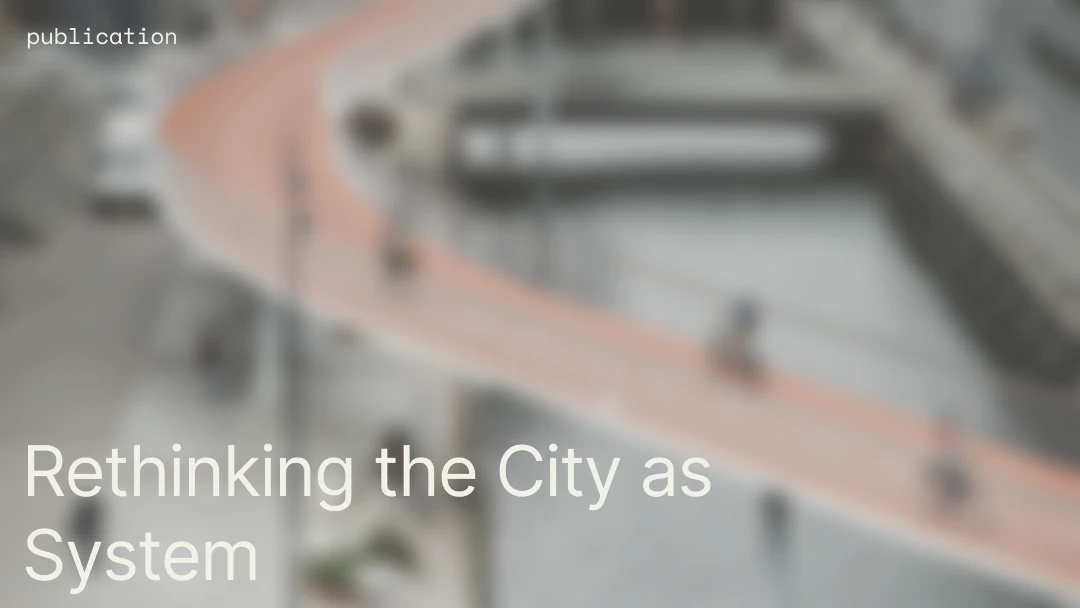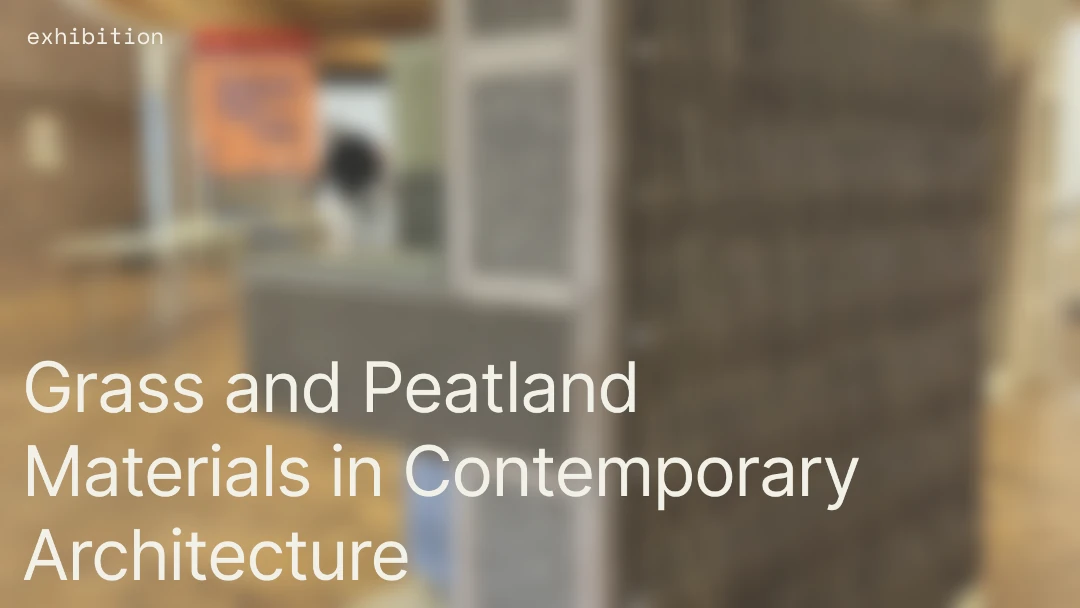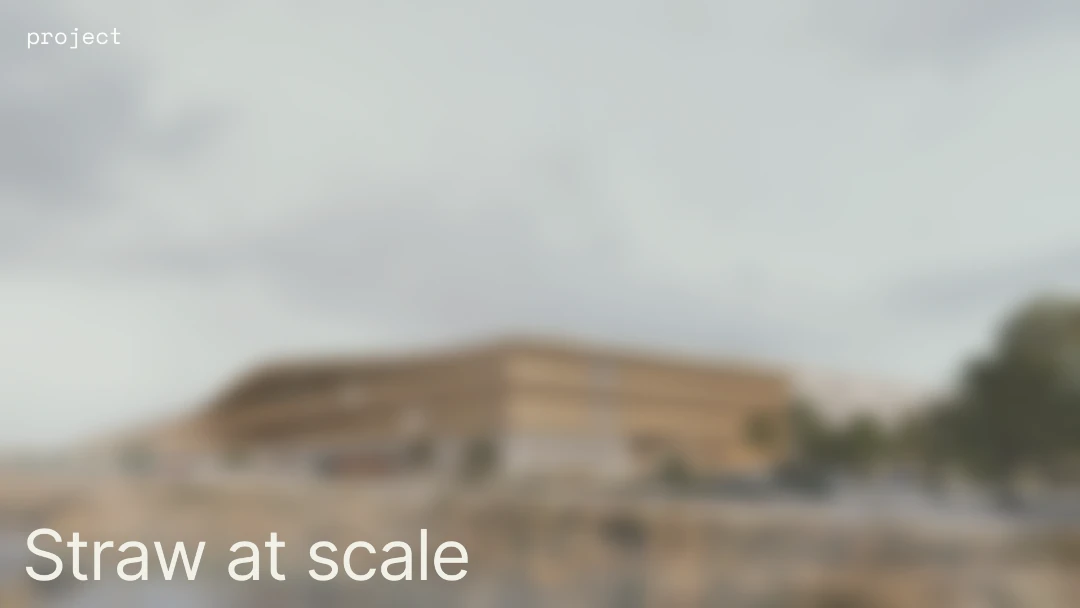
Henning Larsen Architects and Nordic developer NREP have partnered on an ambitious “earthshot” multi-storey residential project that pushes the boundaries of Denmark’s low carbon standards.
The project offers open-source solutions for best practice low-emission construction, featuring assemblies designed for optimal disassembly.

Bio
Kritika Kharbanda has recently been appointed to the Global Head of Sustainability at Henning Larsen, overseeing sustainable strategies across diverse projects worldwide, from educational, multi-family residential, and civic buildings to labs, offices, and master plans. Her work lies at the intersection of architecture, sustainability, and technology. With a Master in Design Studies specializing in Energy and Environments from Harvard GSD with cross-enrollment at MIT, Kritika was a Social Innovation and Change Initiative Fellow at Harvard Kennedy School. Her commitments within the broader building science community include contributing to the NYC Carbon Leadership Forum, International Building Performance Simulation Association (IBPSA), and local carbon-focused policy efforts in New York City. She also is serving on the ULI New York’s Climate and Sustainability Council, and is part of the Young Leaders Group.
What drives you?
Having lived and worked in India, Japan, Denmark and now the US, my outlook has been shaped by my experiences across these countries. Each country is facing climate challenges in their own way.
Here in New York on my way to work, I talk with my mother in the mornings before reaching the office and I tell her that it's really hot and then I realize that it's at least 10-15 degrees hotter where my family is based (in India). So everyday, I acknowledge this privilege of being in a place better suited to face the wrath of climate extremities. I think that is what truly keeps me rooted and gives me the drive to continue working in this space.
In India, due to the high heat, people are losing their jobs because a lot of the jobs are very physical. So you have to be out in the open, instead of a closed air conditioned office. It's a terrifying and vulnerable situation that is happening in India. So I see that I have this opportunity as I am in a sector that has the potential to create a huge impact on many, many lives. We create urban environments and cities that cater to communities and create spaces for people to live, work and play in. I think that is what really drives me.
What does sustainability mean to you?
I think the answer is two-fold for me.
I don't believe that the core purpose of the term ‘sustainability’ itself is limited to only preserving our natural resources. I think it's also about ensuring that we have social justice, equality and equitable access to these resources. I want to imagine a world where clean water is not just luxury or privilege but a basic human right. This is not how the world is currently operating. I think it's easy to forget that we have access to these privileges but it is not the same around the world. So I think we cannot forget about people when we talk about sustainability. Both environment and social sustainability have to go hand in hand.
Secondly, in my role, I am seeing more and more that sustainability is very contextual. The challenges within sustainability vary from place to place. For example in Singapore, a lot of the conversations around sustainability are focused on resiliency due to heatwaves and other particular aspects that come from climate change. In New York, there are a lot of discussions around social justice, and how to bring voices of different underrepresented communities into the spaces that we design. And if we look at Europe, it's a lot further ahead, going beyond operational carbon and starting to focus a lot more on embodied carbon. So sustainability is very contextual and I believe it is subjective, so the solutions have to be subjective as well.
What are the main challenges today when you look at sustainability in the built environment?
One of the biggest challenges - not a surprise - is the lack of data, be it embodied or operational, and then lack of synchronization. I think there are a lot of siloed processes and tools in general in this industry. I guess, It's a combination of data, tools and regulations which vary so much from place to place.
Generally, I think most developers and clients across the globe that I encounter think that building sustainably can be expensive. It's a challenge at times to finance environment-friendly solutions, but if designed with sustainability in mind from Day 1 of the project, a wide range of solutions can be explored. Integrating sustainable thinking early on can not only bring clever solutions in the project, but also save clients money in the long run! So overall, building sustainably is cheaper.
I also think that the governments need to have more cash flow towards innovation, more investment opportunities for climate tech startups who are working to solve issues around climate change and this should be across all industries, especially the most pressing sectors like the built environment and energy.
Working across so many countries and witnessing these developments, what is your opinion on the regulatory progress currently?
Looking from the bigger umbrella perspective, there are lots of hiccups in terms of standardization. Regions have varied degrees of progress in implementing laws and policies. Further, adaptation and educating all stakeholders on these processes is a challenge.
However, the regulations focused on material data in the past three years have made a lot of progress in the US. Organizations like the Carbon Leadership Forum and a lot of these different collaborations, came together to push these policies from the ground up. I am so excited to see things are happening and gaining momentum.
How do we move towards a new material palette?
I think first and foremost, we need believers. We need to change the attitude of “No one wants to be the first.”
We usually work with tools in the early phases, performing high-level life cycle analysis, to help justify the recommendations from a numbers perspective. A lot of the time it's just taking the clients by the hand and showing them alternatives and places — through case studies of possibilities.
And then the second aspect, related to that, is knowledge sharing. In my new role, I am working to establish avenues to facilitate knowledge from across the globe - like bringing great examples of bio-based materials from Europe to other geographies. Knowledge sharing needs to happen on all fronts, especially beyond architects, and across developers and contractors, and other stakeholders. We have all hands on deck to make this happen.
Lastly, if we look at the startup scene, there needs to be a lot more scaling. There is a lot of innovation happening in bio-based materials, circularity, and low-carbon concrete, but as an architecture firm, we need the space to scale them up. We need to build a robust pipeline, so these innovations can actually be specified in an actual project because this is the only way to make everyone see that this is possible. At Henning Larsen, we do this through our industrial PhD program, and other collaborations with academic and non-profit partners, like the recently launched KlimaKover project.
Where should the industry stand by 2030?
Many cities have signed on to become net-zero by 2030, and we know most cities are falling short. So unfortunately, realistically, it's hard for me to see a positive future right now.
I believe we need to turn it completely upside down. We have to flip our value propositions. The value proposition of architecture, according to me, is not to create buildings that look like they come from outer space, or buildings that do not respond to their context. The developments need to cater to the ecosystems that they are built for, I feel that the habitats should be created so they are long-lasting.
The value proposition currently does not focus on that. It's very much focused on the next five or eight years. The mindset today is, “how can I do something which gives me good ROI immediately”, but we need to think that we are leaving a legacy, and therefore we need to create something that is long lasting; something that functions for generations to come. So it's more about the narrow-tenure thinking that needs to change.
Do you have any advice for those who strive to make changes?
Combining passion, time and place is very important. I think people should not waste their time at a place that does not value their growth or does not contribute to their ambitions. If you are stuck in a place that does not value your ideas and creativity, you will end up losing the motivation to create the impact you are capable of.
.png)
.png)
.png)




























